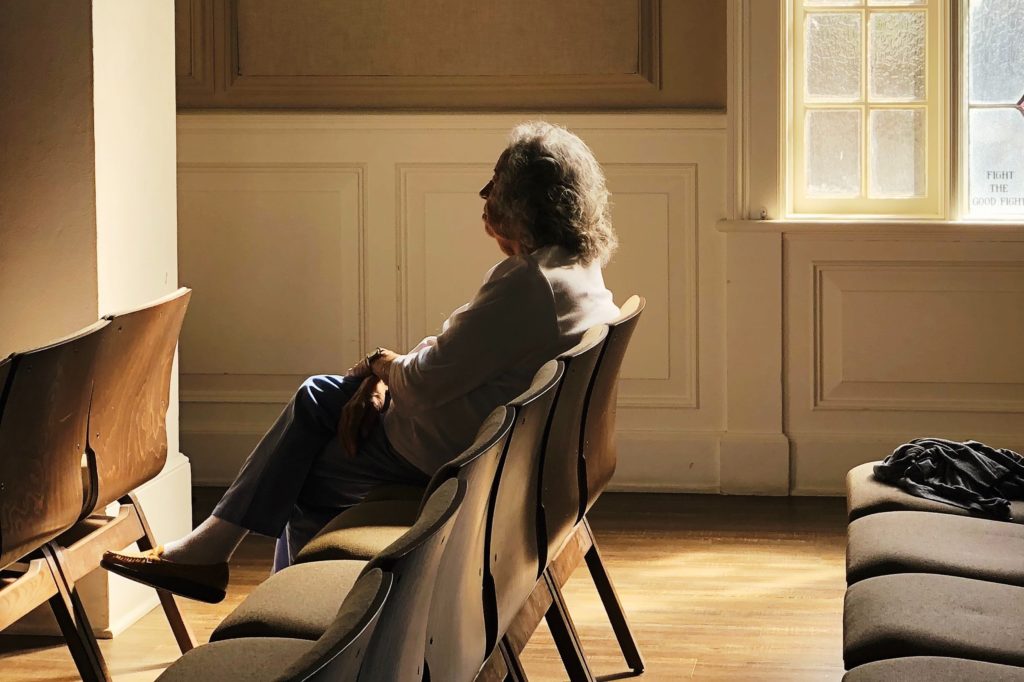In a typical week I attend the same meetings, check in on the same friends, have the same interactions with family members, watch the same shows and sporting events on television, listen to the same podcasts, stick to the same exercise routines, eat at the same restaurants, drive the same routes, enjoy the same activities at church, send the same emails, check the same social media accounts, make small talk with the same neighbors, and read the same (or at least the same kinds of) books. I have a routine, and I don’t mind it.
That’s not to say that I avoid change. I really enjoy visiting new places. And there’s something borderline adventurous about going for a walk downtown or driving out for ice cream when you would normally pack it in for the night.
We all get used to a certain pace of life. For most of us, I venture to guess that our typical pace is anywhere from steady to warp speed. Yet I also suspect that a great many of us have had that pace come to a near screeching halt over the past several weeks.
In the case of my family of six, there’s still the school assignments to keep up with. But instead of rushing everyone out the door early in the morning, the task is trying to fit everyone’s laptops, tablets, headphones, textbooks, papers, and pens around the dining room table. It can be hectic, but in a much different way.
Most of us have had to adjust to a “new normal.” And none of us knows for how much longer these adjustments will be necessary. Here’s what I’ve concluded: the new normal is not what I would have chosen, but it might be exactly what I needed. That is, in every area except one.
Let me clarify. For some, this pandemic has meant loss of life, loved one, or employment. If I’m being honest, this crisis has really not been that much of a crisis for me, at least not yet. God’s grace and mercy to us at this point has been evident and abundant. By no means do I want to minimize the very real hurt or stress that has been experienced by countless others during this time.
I simply mean that I could probably get used to a “new normal” in many parts of life. Yes, I want people (including myself) to be able to return to work very soon. I want sports to return. I want to go back to handshaking and hugging and dinner parties and eating out and family gatherings. But even most of those things could deal with a new normal.
- A new normal for family life might be that we don’t always have to be “on the go,” but that we grow to appreciate simply being under the same roof together.
- A new normal for sports might be that we still enjoy the competitions, but we don’t let them rule our schedules.
- A new normal for economics might be that we are more generous to others, more content with less, more willing to support small businesses, “essential” workers, churches, and missionaries, and more appreciative of the paychecks we do get.
- A new normal for schools might be that teachers and parents partner together regularly in the education of children.
- A new normal might mean that families are outside more together, interacting and sharing life with neighbors, checking in on the elderly, and taking more walks.
- A new normal might mean reading more, playing more games, calling extended family members, following up with missionaries, and having more down time.
- These are but a sampling of ways that our family has attempted to pass the time lately. And I doubt much of it would have happened apart from these unique circumstances.
But here’s the one place where we absolutely must not accept a new normal: the church. We cannot rightly call what Christians do “church” if we don’t actually assemble and gather together in person. Certainly it is prudent, given the nature of things now, that we don’t meet for corporate worship until the appropriate time. But at the appropriate time, we should once again resume our weekly congregating.
I’m not too worried about churches never opening up again. I’m more worried that some will decide that the livestream option is more convenient and therefore will choose that over making the effort to attend in person. Or that a small group meeting over Zoom is more desirable than visiting the home of another member, or hosting others in our homes.
Technology can (and has) served the church well, both before and after the days of social distancing. Churches ought to steward technology wisely for the good of the members and the glory of God. But technology ought never to replace or usurp the authenticity of personal interactions within the family of God.
If anything, my prayer for local churches would not be to seek a new normal once our restrictions are lifted, but rather an “old normal.” That is, let priority be given to the Word of God as we read it, sing it, preach it, pray it, and enact it (through the ordinances) during our weekly services. Let technology take a back seat to the Bible as we speak its encouragements to one another, sing its truths to one another, read its warnings and commandments to one another, pray its confessions together, and listen to its authority as it is preached among us.
Sooner or later, we will all likely return to the routines we knew before “stay at home” orders. When that happens, it would behoove us to do so gratefully and with an appreciation for the simple pleasures that we likely previously overlooked. For believers, nowhere will such things be more apparent than in the buildings that now stand empty on Sunday mornings, but will once again be filled with the sights and sounds of people building one another up, the body once again united to exalt its Head.
The church isn’t perfect. There are improvements we could make and things we can do better. But the “better” likely involves remembering and rehearsing old truths rather than utilizing the latest gadgets, bells, and whistles. We want people to be wowed by our Savior, not by our social media presence. Until we meet again, the greatest tool church members and church leaders can and should become familiar with is not Zoom; it’s the Bible. May our routines always involve careful attention to the Scriptures so that our lives and churches are guided by the things therein.




